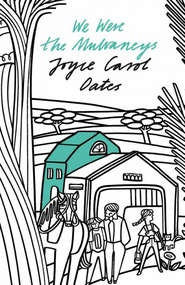По всем вопросам обращайтесь на: info@litportal.ru
(©) 2003-2025.
✖
The Man Without a Shadow
Автор
Год написания книги
2019
Настройки чтения
Размер шрифта
Высота строк
Поля
“He is our ‘amnesiac’—his identity must be kept absolutely confidential.”
Milton Ferris speaks lightly—there is something meant to be playful about the words our amnesiac—but of course he is utterly serious. Everyone at the Institute who comes into contact with Elihu Hoopes, who knows his identity, is sworn to secrecy; others are not told his name—“For legal reasons.”
Since Ferris has begun to publish his “exciting” and “controversial” research on E.H., scientists at other universities have contacted him with requests for interviews with the amnesiac subject. Ferris has refused most of these requests as impractical, since, as he says, he and his researchers are currently studying E.H., and it is not possible to subject E.H. to further testing.
“He is our subject, exclusively. That is the agreement.”
Milton Ferris has become vehement on the subject. Exclusively is an unmistakable claim.
PROFESSOR SHARPE, DID you ever consider at any time that you and your fellow researchers were exploiting the individual known in scientific literature as “E.H.”?
No. I did not.
Really? At no time, Professor Sharpe, during the thirty-one years you studied him, did it occur to you that you might be behaving unethically, in exploiting his handicap? His “amnesia”?
I said no. I did not.
And do you speak for your fellow researchers, as well? Do you speak for the neuroscientific community?
I speak for myself. The others can speak for themselves.
But “E.H.” could not speak for himself—could he? Did “E.H.” ever comprehend the nature of his affliction?
I’ve told you, I speak for myself. That is all.
“That is all”—Professor Sharpe? After thirty-one years?
HE IS NOT being exploited, he is being protected from exploitation!
Margot Sharpe wants to protest. In time, Margot Sharpe will protest publicly.
For E.H. is a neurological wonder, capable of odd, unpredictable feats of memory while incapable of remembering “familiar” faces or what he has just eaten for lunch, or whether he has eaten at all. He has astonished observers by interrupting a rote-memory test to recite the names of his grade school classmates at Gladwyne Elementary School in 1935, desk by desk. On other occasions E.H. has recited Major League Baseball statistics, dialogue from favored comic strips Dick Tracy, Terry and the Pirates, Little Orphan Annie, and song lyrics of Oscar Hammerstein. He can recite passages from speeches by Lincoln, Roosevelt, John F. Kennedy, Martin Luther King, Jr. By heart he knows the entirety of the American Declaration of Independence and portions of John Locke’s The Rights of Man. He knows passages from Thoreau’s Walden, Whitman’s Leaves of Grass, Jean Toomer’s Cane. On the Institute court he plays tennis with zest and cunning; he can play piano by “sight” reading—some classics, some American popular songs, and Czerny exercises to grade eight. He is remarkably gifted at jigsaw puzzles, crossword puzzles, plastic puzzles of the kind that fit in the palm of the hand and involve moving numbered squares about in a specific pattern. (How Margot hates those damned plastic puzzles!—she’d never been able to do these with the skill of her brothers, whose grades in school were always inferior to hers; when E.H. offers his puzzle for her to try she pushes it away.) If journalists hear of E.H., Margot can imagine sensational TV coverage, articles in People, Time, and Newsweek, the Philadelphia Inquirer and other local publications. Neighbors, acquaintances, medical workers and researchers who know E.H. would be plied with interview requests. Fortunately the Hoopes family isn’t in need of money, so there is little likelihood of E.H. being exploited by his own relatives.
Margot thinks—I vow, I will protect Elihu Hoopes from exploitation.
“‘Elihu Hoopes.’”
These syllables, he hears murmured aloud. The sounds seem to come out of the air about his head.
The strangeness of the proposition—(he cannot think it is a fact)—that these syllables, these sounds, four stresses, constitute a “name”—and the name is “his.”
His body, his brain. His name. Yet, where is he?
It is a peculiar way of speaking, he’d thought long ago as a child—before the fever burnt up his brain. Why would anyone say—I am Elihu Hoopes.
Again he hears the syllables, in a hoarse, slightly derisive voice.
“‘Elihu Hoopes’—who was.”
IS HE AT Lake George? But where? Not on one of the islands, which have no trails so clearly defined as the trail he sees here, leading through a pinewoods, and out of sight.
Nor is there a plank bridge at the lake quite like this bridge, so far as he can recall.
How lost he feels! No idea how old he is, or where the others are. No idea if he is hungry, if he has eaten recently or not for a very long time.
The others. Scarcely knows what this means: parents, grandparents, adult relatives, young and elder cousins. A child has but a vague sense of others. Apart from relatives, many adults seem interchangeable—faces, names. Ages.
So many adults, in a child’s life! Children nearer his age, for instance young cousins, are more vividly delineated and named.
Where is Gretchen?—she has gone away.
When will you see Gretchen again?—maybe not for a while.
He is trying to recall if this is before the “search party”—(but why would there be a “party”—in the woods? Why a “party” when the girl is gone away somewhere, and the adults are sad?)—or after; if this is before Granddaddy insisted upon taking up the Beechcraft, and had to make an emergency landing on one of the islands.
Trying to recall if the fever in his brain is the fire from the crash, or the fire in the hospital.
Beyond the plank railing is a shallow stream. He has been hearing the murmurous sound of the flowing water for some time, without realizing. Only when he sees the stream, and identifies the flowing water, does he hear it.
Gripping the railing tightly in both hands. Standing with his feet apart, to brace himself against a sudden wind. (Though there is no wind.) Facing a marshy area dense with swamp grasses, tall reeds, pussy willows and cattails. Trees denuded of bark, hunched over like elderly figures, choked with vines. A smell of wet, rotted things. And everywhere, strips of shimmering water like strips of phosphorescence that glow in the dark as warnings.
Below the plank bridge—so loosely fitted, you can see between the boards—is the shallow stream that flows so slowly you can scarcely determine in which direction water is flowing.
And on the water’s surface he sees something curious, that makes him smile: small antic winged insects—“dragonflies.”
He has not seen these glittery insects until now, leaning over the railing. And there are others—“skaters.” (How does he know these names? Effortless as the meandering stream, and as near-imperceptible, “skaters” and “dragonflies” float into his thoughts.)
He has heard of “dragon”—and he has heard of “fly.” It is a novel thing, to put them together: “dragonfly.” He did not do this, he thinks. But someone did.
He has been leaning over the plank railing, staring down. His mouth is slightly open, he breathes quickly and anxiously. For he is in the presence of something profoundly significant whose meaning is hidden to him—which causes him to think that he must be very young. He is not the other, older Elihu—that has not happened yet.
This is a relief! (Is this a relief? For whatever will happen, will happen.)
He sees: what is arresting about the insects is that their shadows are magnified in the streambed a few inches below the surface of the water upon which they swim. If you observe the shadows that are rounded and soft-seeming you could not deduce that they have been cast by the insects with their sharply-delineated wings.
If you observe the shadows below, you can’t observe the insects. If you observe the insects, you can’t observe the shadows.
He is beginning to feel a mild anxiety in the region of his chest—he does not know why.
He sees, beyond the marsh are low-lying shapes—“hills.” Though these could be stage sets, painted to resemble “hills.”
He has not turned to look around, to see what is behind him. It is crucial, he must not look behind him. That is why he is gripping the plank railing so tightly, and why he stands with his feet apart, to steady himself.
Will not look. Has not (yet) seen the girl’s body in the shallow stream.
“ELI, THANK YOU!”
Carefully, Margot spreads E.H.’s most recent drawings and charcoal sketches on a table.











